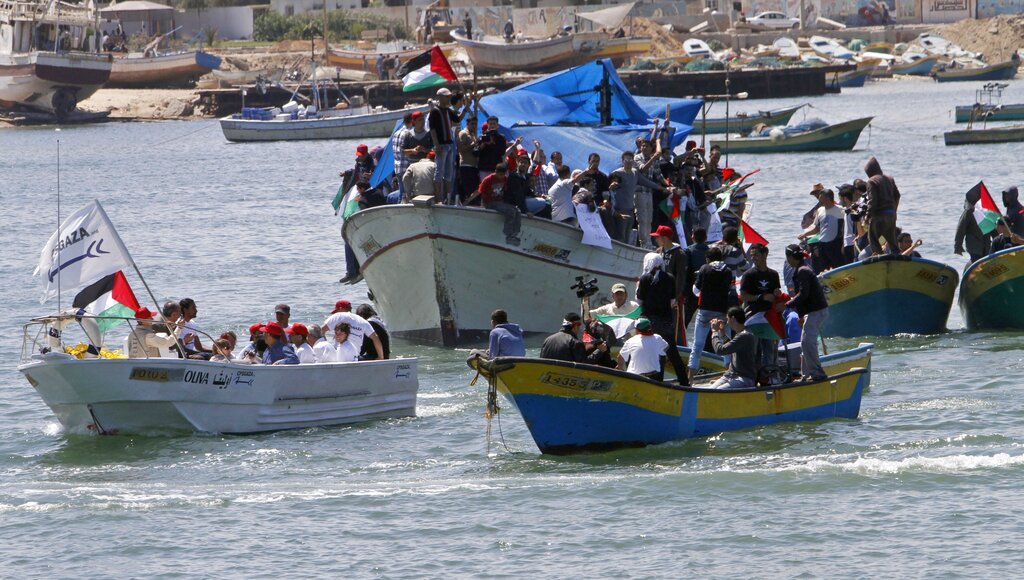في نهايات القرن التاسع عشر، كان الصراع في مدينة نيويورك قد اشتد بين ويليام راندولف هيرست وجوزيف بوليتزر. كان صراعا جوهره تحقيق أكبر قدر من العوائد المادية من بيع الصحف؛ فراندولف هيرست كان قد استحوذ على صحيفة نيويورك جورنال لمنافسة جوزيف بوليتزر، مالك صحيفة نيويورك وورلد.
بدأت المنافسة على شخصية "الفتى الأصفر The Yellow Kid" الكاريكاتيرية، التي كانت تُنشَر يوميا على صفحات نيويورك وورلد، قبل أن يتمكن هيرست من الاستحواذ على هذه الشخصية عبر التعاقد مع رسّامها ريتشارد أوتكولت ونقلها إلى صحيفته. ولأن تلك الشخصية الكاريكاتيرية كانت تمارس سخرية ونقدا تجاه كل شيء في السياسة والمجتمع، فقد تحولت قصصه اليومية إلى جوهر النقاشات بين العامة، وهو ما دفع بوليتزر إلى إعادة توظيف رسام جديد لينتج قصص الفتى الأصفر لصحيفته، ويشعل حرب توزيع بين الصحيفتين.
وفي سبيل كسب تلك الحرب، أصبحت كل صحيفة تحاول جاهدةً وضع قصص وعناوين جاذبة للقراء، وكانت في كثير من الأحيان قصصا مختلقة وعناوين مضللة تضمن بيع أكبر عدد من النسخ.
حينئذ، أصبح الناس يشيرون إلى صحيفتي نيويورك جورنال ونيويورك وورلد بمصطلح "صحافة الولد الأصفر Yellow kid Journalism"، الذي عدّه كثير من الباحثين أساسا لتحوله لاحقا لمصطلح "الصحافة الصفراءYellow journalism ".
تميزت الصحيفتان بخط تحريري يركز على أخبار الإثارة والتهويل حتى لو اضطرتا إلى التلاعب بالحقائق أو إخفاء جزء منها أو تأليف قصص كاملة من العدم. هذه المنافسة المحتدمة، خلقت أساليب غير معتادة في ممارسة الصحافة حينئذ، ووعدت بتقديم مقاربات جديدة ستخلخل قواعد الحرفة جوهريا، لعل أبرزها كان تحويل الصحافة إلى وسيلة ربحية تحقق عوائد هائلة.
"الضحية الأولى"
إن الحديث عن ضرر الصحافة الصفراء، أو بعبارة أخرى التضليل الإعلامي الممنهج، أيّا كانت دوافعه، لا ينطلق من محاولة ترويج مقاربة صحفية "ملتزمة" في الصحافة في مقابل مقاربات أخرى، بل من الضرر الهائل الذي يحدثه التضليل في المجتمعات والذي قد يصل إلى حد إشعال حروب، أو تقديم مسوغات للإمعان فيها.
استغرق المجتمع الأمريكي أقل من عامين ليبدأ بتلمس الآثار الفعلية لهذا التضليل؛ إذ تُتهم تغطية صحيفتي نيويورك جورنال ونيويورك وورلد بأنها أحد الأسباب في إشعال الحرب الأمريكية الإسبانية عام 1898 بسبب افتعالها لقصص أسهمت في تعبئة الرأي العام الأمريكي بضرورة خوض حرب مع الإسبان في كوبا. وكان أبرزها حادثة تفجير سفينة يو أس أس ماين (USS Maine) التابعة للبحرية الأمريكية ومقتل عشرات الجنود فيها؛ إذ سارعت تلك الصحف إلى اتهام الإسبان بتفجيرها من دون أي دليل، وعمدت كذلك إلى تعبئة الشارع لدفع الولايات المتحدة لخوض حرب مع الوجود الإسباني في كوبا بمساندة الثوار هناك، وكذلك كان(1).
قوّض التضليل قدرة النقاشات العامة على تسليط الضوء تجاه ما يؤثر في حياة الناس، وأدخلها في حالة اضطراب، تاركا المجال للوبيات الإعلام والسياسة لتفرض أجندة النقاش العام بما يتوافق مع مصالحها وتصوراتها
الأثر القاتل للتضليل
خلال العقود الماضية، لعب التضليل دورا في إذكاء نار الصراعات والحروب، وليس آخرها التضليل الذي قادته وسائل إعلام غربية تجاه الحرب الإسرائيلية على قطاع غزة، وكيف لعب دورا في استمرار الحرب والإمعان فيها، وإجهاض مساعي وقفها في أكثر من مرحلة.
في الرسالة التي وقعها أكثر من 50 أستاذا جامعيا للصحافة في الولايات المتحدة، والتي انتقدوا فيها القصة المضللة التي نشرتها نيويورك تايمز بشأن ادعاءات وجود جرائم عنف جنسي ارتكبها عناصر من حماس يوم السابع من أكتوبر، أشار الأساتذة إلى أن نشر القصة المضللة أسهم في تقويض محاولات احتواء الحرب (2).
وفي 16 أكتوبر/ تشرين 2023، نشر موقع بي بي سي على موقعه مادة صحفية ردا على سؤال ادعى أنه من أحد القراء، مؤداه: "هل تبني حماس أنفاقا تحت المستشفيات والمدارس؟". وكان رد المحررة بأن "هناك تقارير تفيد بأن بعض الممرات لها مداخل في الطوابق السفلية للمنازل والمساجد والمدارس" من دون تقديم دليل ملموس يؤكد ذلك أو ينفيه، وهو ما جعل الجواب يبدو لدى بعض القراء وكأنه تأكيد على وجود تلك الأنفاق تحت المستشفيات. في اليوم التالي، قصف جيش الاحتلال الإسرائيلي مستشفى الأهلي المعمداني ما أدى إلى استشهاد أكثر من 500 فلسطيني معظمهم نساء وأطفال اتخذوا المستشفى ملاذا آمنا من القصف الجوي الإسرائيلي (3).
شيطنة الحقائق
لا تهتم الصحافة الصفراء في تضليلها بحقائق الأمور ولا تحاول حتى تقديم حقائق مجتزأة لإضفاء بعض الصدقية على تلك القصص؛ لأن ما يهمها هو تقديم معطيات تتسق مع التصورات المسبقة والصور النمطية الموجودة لدى أفراد في المجتمع، أو ما يعرف بـ "المغالطة الجمالية The Aesthetic Fallacy"؛ أي إن مجرد تقديم المادة الصحفية معلومات تتوافق مع القناعات المسبقة المتشكلة لدى فئة من العامة، كفيل بجعلها تتعامل مع التضليل كحقيقة.
لا تهتم الصحافة الصفراء في تضليلها بحقائق الأمور ولا تحاول حتى تقديم حقائق مجتزأة لإضفاء بعض الصدقية على تلك القصص؛ لأن ما يهمها هو تقديم معطيات تتسق مع التصورات المسبقة والصور النمطية الموجودة لدى أفراد في المجتمع.
وعلى مدى العقود الماضية، استفادت المؤسسات الصحفية من عمليات التضليل الممنهج لتحقيق عوائد مادية أكبر وسلطة هيمنة ثقافية جعلتها قادرة على تشكيل قناعات المجتمع خدمةً لمصالح الساسة ورجال الأعمال، علاوة على القدرة على تشتيت الرأي العام عن فهم الدور الذي تلعبه النخب السياسية والاقتصادية في إحداث الضرر في المجتمعات. ويتجلى ذلك عبر تزويدهم بسرديات مضللة لكن مقنعة ومتوافقة مع القناعات المشوهة التي زرعتها النخب، فتبدو أجمل للتصديق، مقارنة بالحقائق التي قد تكون مزعجة ومقلقة، فيشيطن كل من يحاول تقديمها، بما يخدم مصالح النخب المستفيدة من بقاء الجمهور مضللا عن حقائق الأمور ويسهل من قدرتها على التلاعب في الرأي العام.
"تقويض مصداقية الصحافة"
مع انتشار منصات التواصل الاجتماعي وما منحته للجمهور من قدرة على الوصول إلى مصادر مختلفة للمعلومات، ظن كثير من الباحثين أن عصر الهيمنة على السرديات التي كانت تتحكم بها وسائل الإعلام الكبرى قد انتهى، وأن الهيمنة الثقافية للنخب الاقتصادية والسياسية في العالم بدأت تلفظ أنفاسها الأخيرة.
يمكن القول إن هذا الافتراض كان صحيحا في السنوات الأولى التي تلت ظهور تلك المنصات، قبل أن تنتبه النخب إلى الخطر المحدق الذي يهدد قدرتها على السيطرة على السردية العامة، فتبدأ مرحلة جديدة أكثر تعقيدا من التضليل تقودها دول ومؤسسات رأسمالية، هدفت إلى إغراق الفضاء العام بكم هائل من الأخبار المضللة لتشتت النقاش العام بشأن أي شيء. لقد أدى ذلك إلى ردة فعل جعلت الجمهور لا يثق بأي شيء يراه حتى بالحقيقة نفسها مما قوَّض قدرة الصحافة على لفت انتباه الجمهور للقضايا التي تهمه، وقوّض قدرة النقاشات العامة على تسليط الضوء تجاه ما يؤثر في حياة الناس، وأدخلها في حالة اضطراب، تاركا المجال للوبيات الإعلام والسياسة لتفرض أجندة النقاش العام بما يتوافق مع مصالحها وتصوراتها (4).
على مدى العقود الماضية، استفادت المؤسسات الصحفية من عمليات التضليل الممنهج لتحقيق عوائد مادية أكبر وسلطة هيمنة ثقافية جعلتها قادرة على تشكيل قناعات المجتمع خدمةً لمصالح الساسة ورجال الأعمال
ويؤكد هذه الفرضية تراجع ثقة الجمهور بالصحافة بصورة عامة خلال السنوات الأخيرة، وتراجع اهتمامهم بالأخبار بل حتى بالحديث عن القضايا السياسية؛ إذ يشير تقرير لمركز بيو للأبحاث، إلى أن قرابة نصف الأمريكيين (45%) توقفوا عن التطرق للقضايا السياسية في نقاشاتهم.
يهدد هذا الخطر قدرة الصحافة المهنية على الاستمرار في وظائفها الرئيسية في مراقبة السلطة وتثقيف العامة في القضايا التي تؤثر على حياتهم، ويترك المجال مفتوحا أمام صحافة الإثارة التي تقدم للناس ما يحبون رؤيته، لتعود قصص "الفتى الأصفر" لتستحوذ على اهتمامات الناس، بينما يستمر الساسة في الإمعان في فسادهم وحروبهم.
المراجع
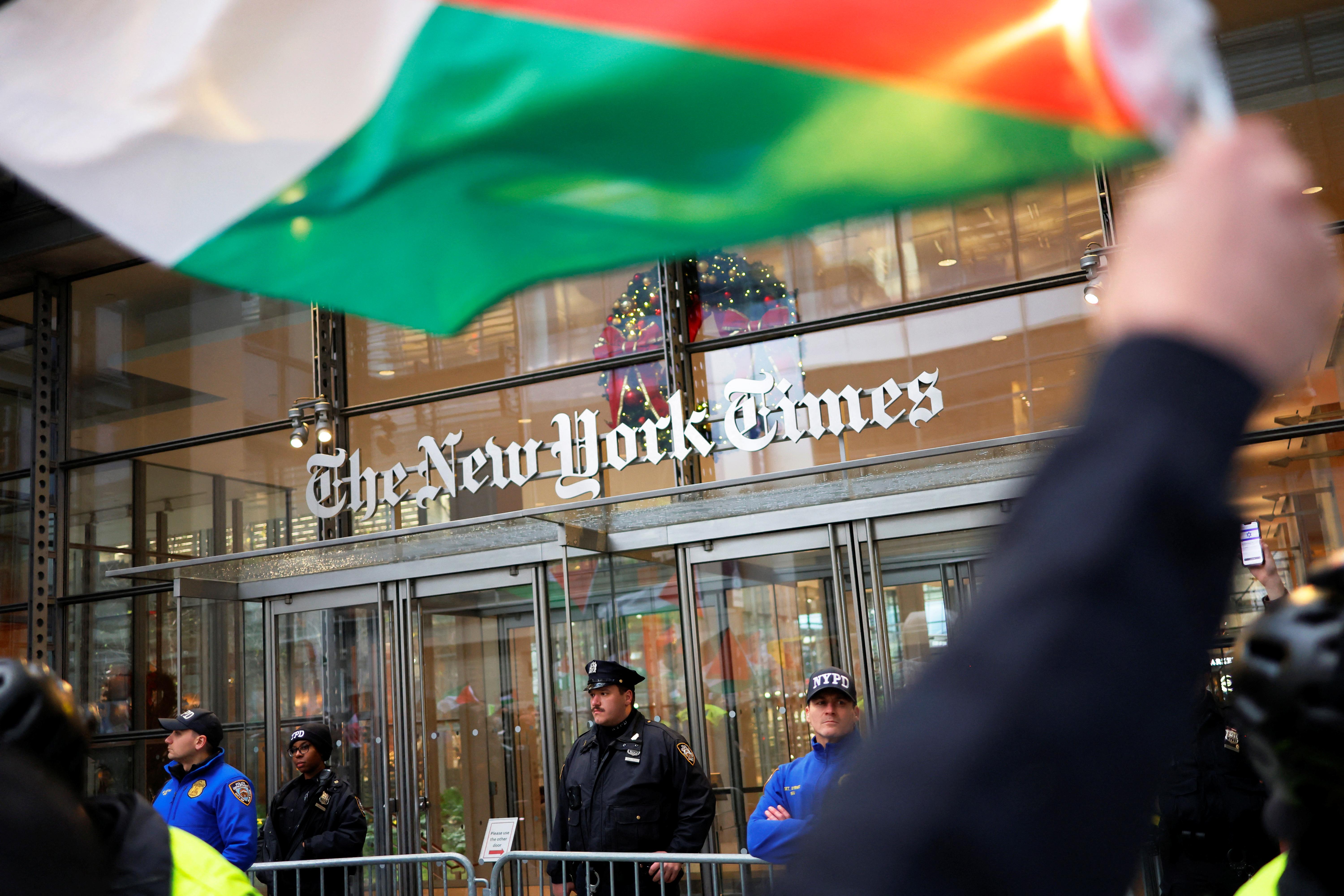


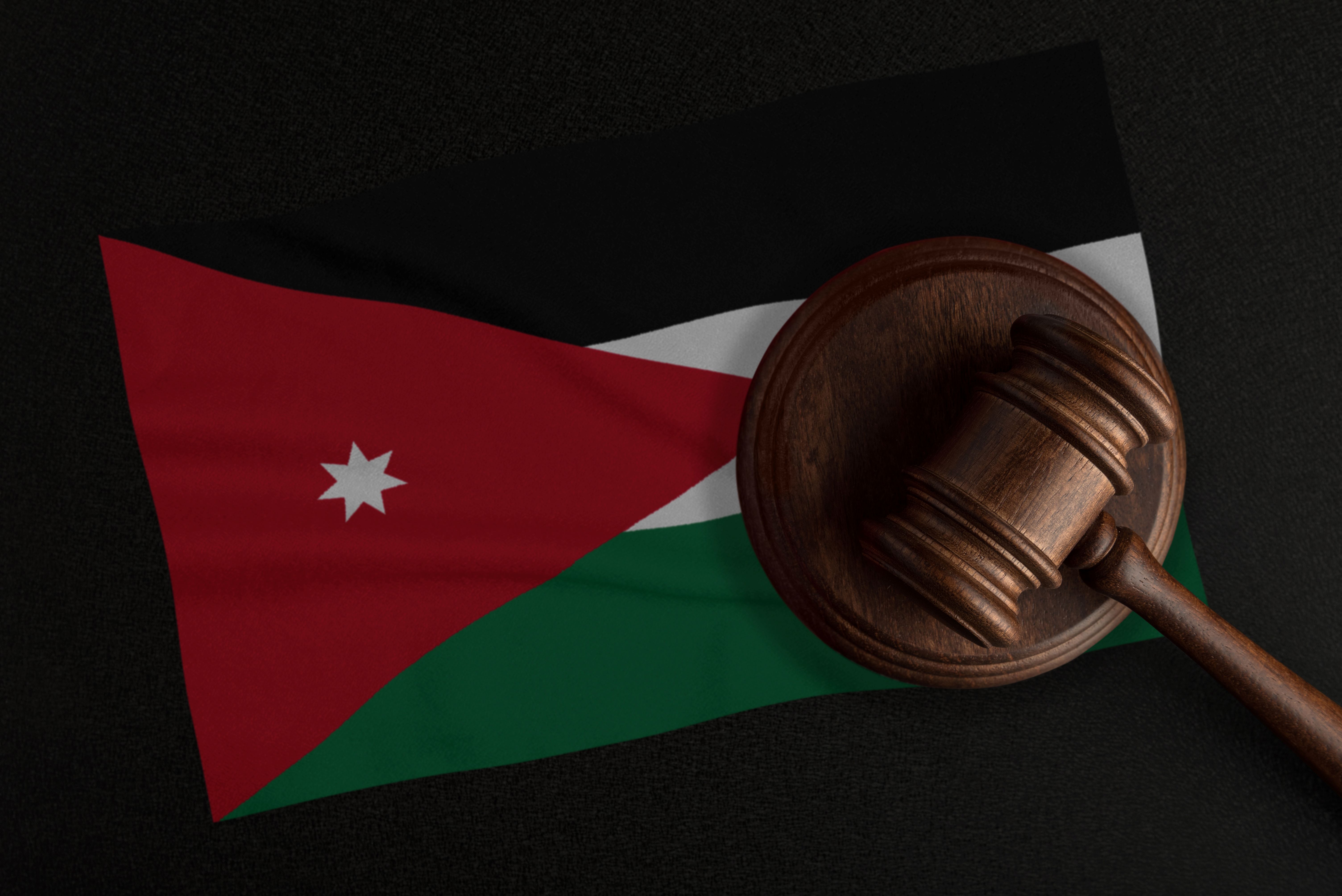

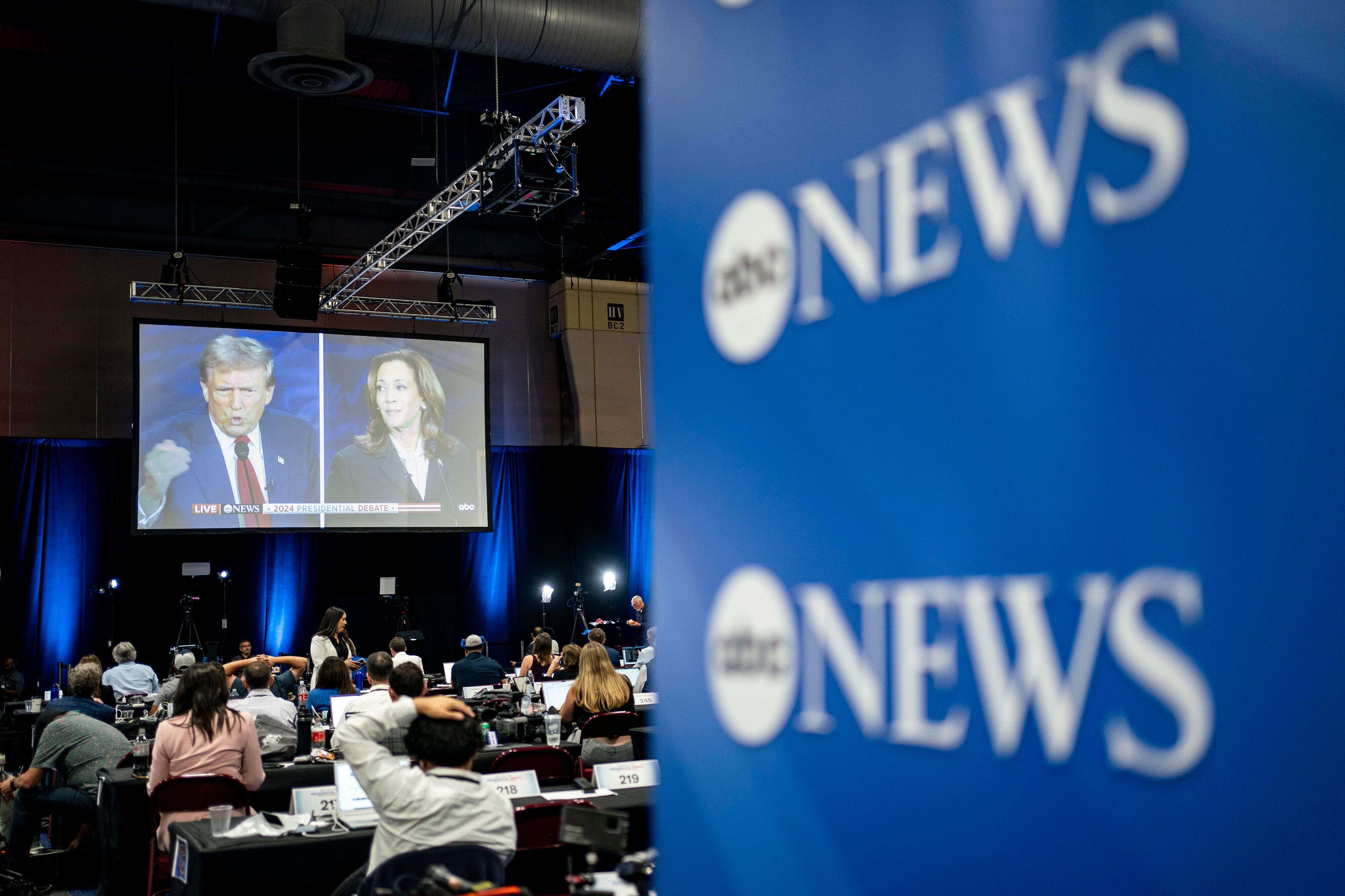



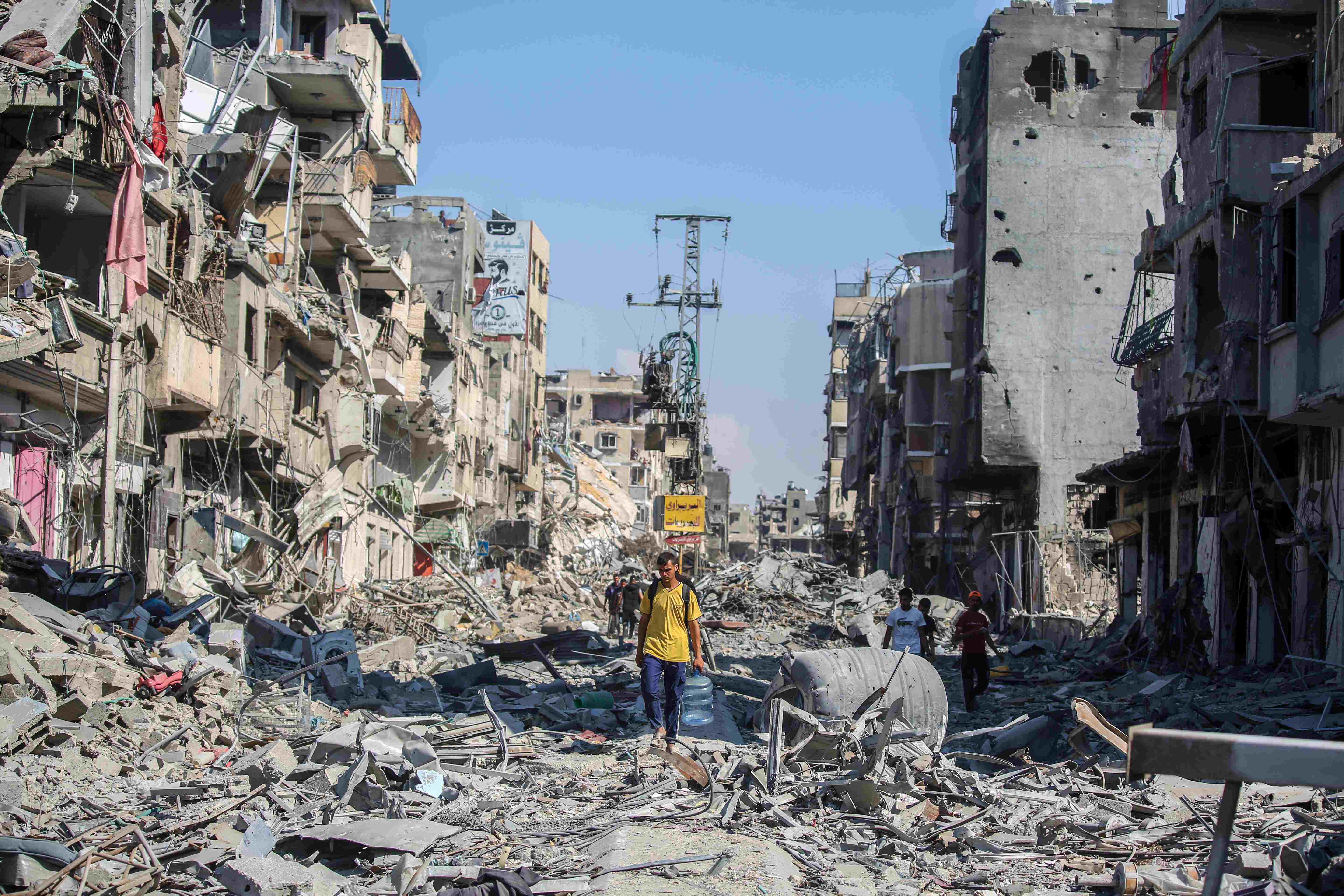

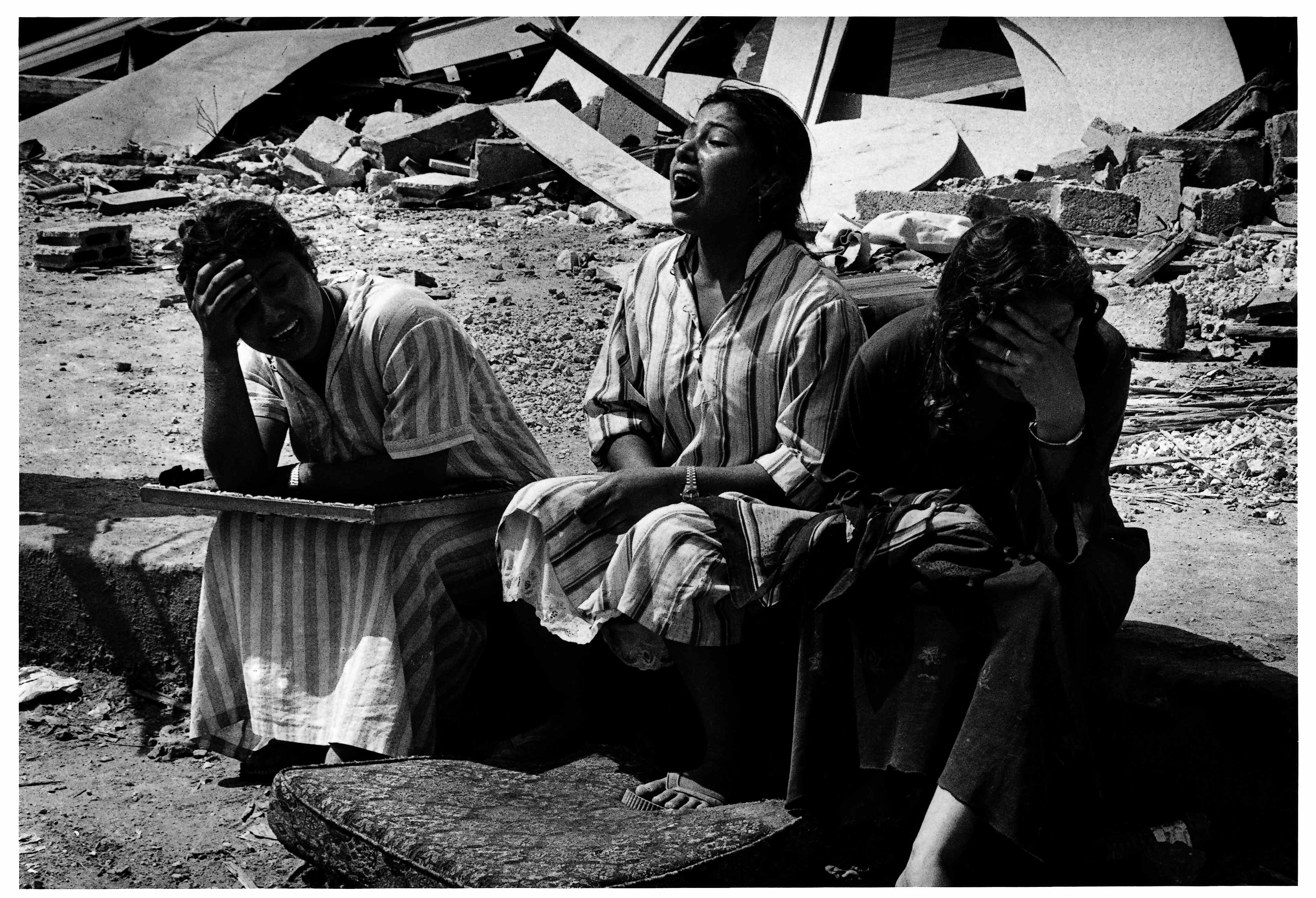


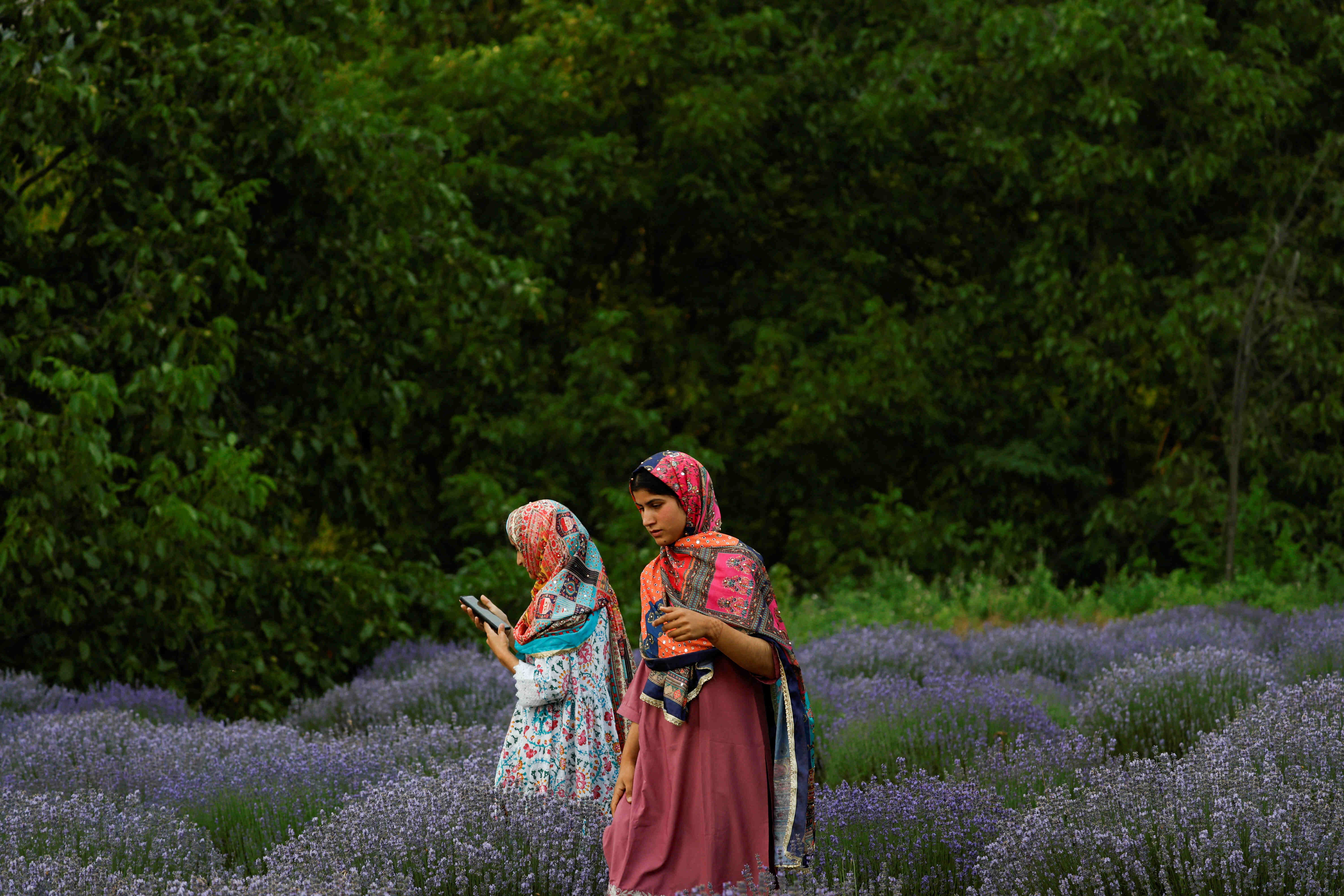

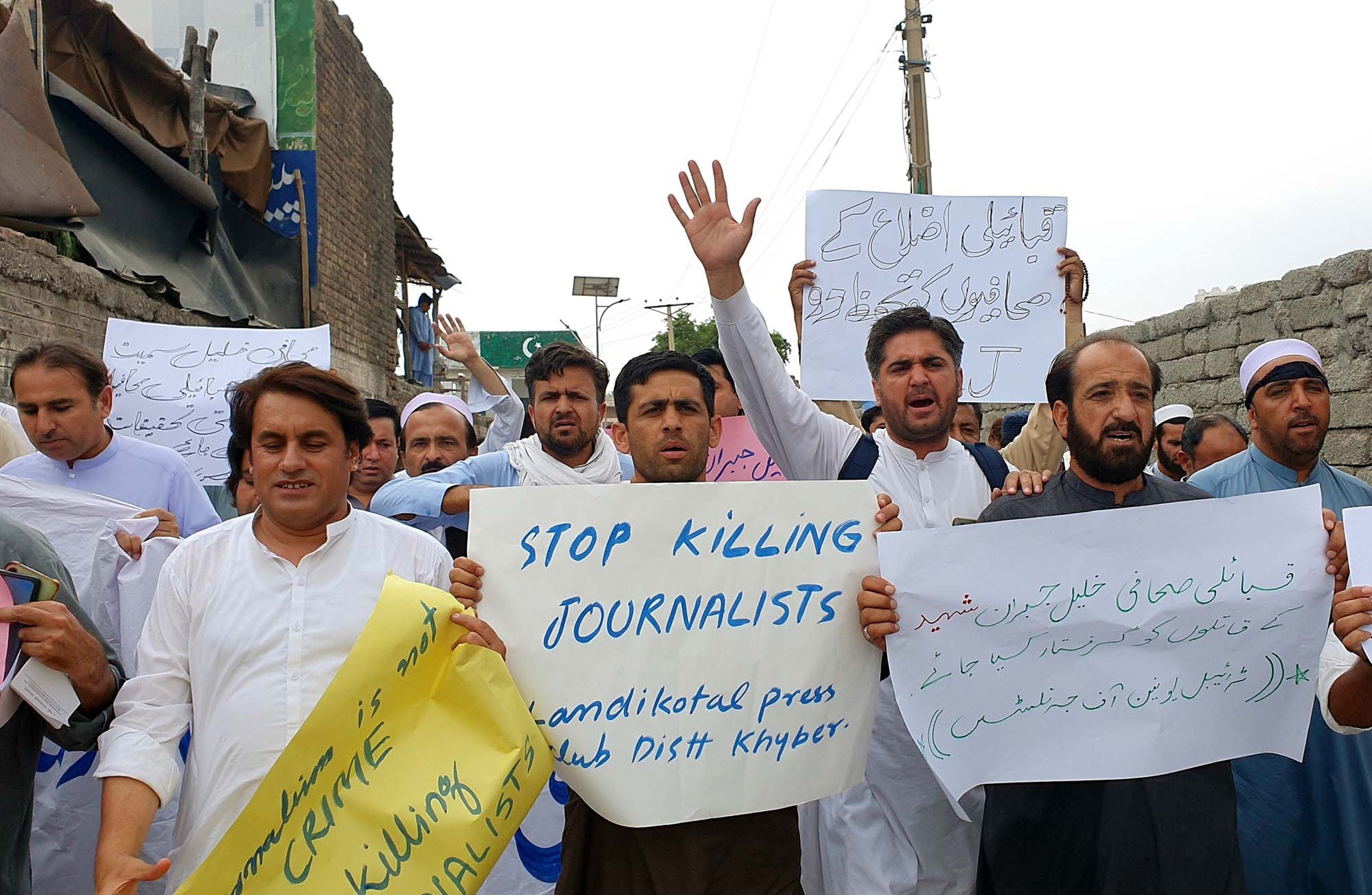

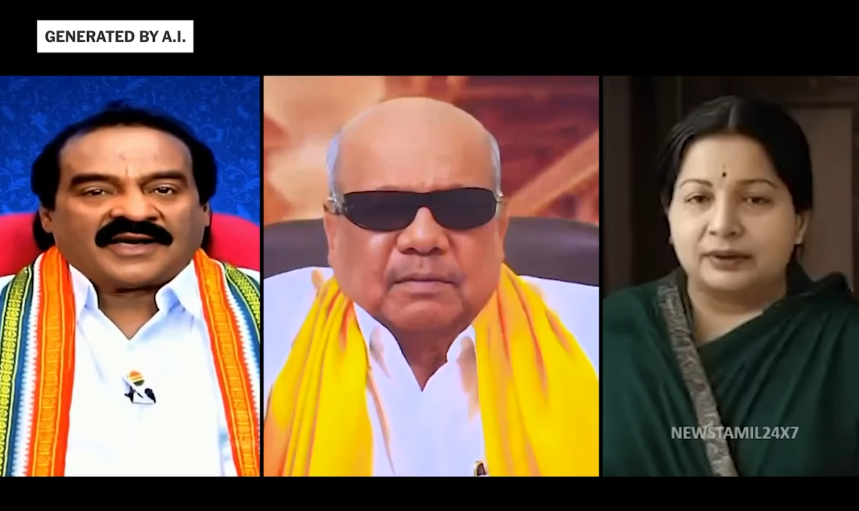




















![A demonstration against Israel's war on Gaza on Paulista Avenue in São Paulo on November 4, 2023, draws attention to the deaths of children while the media focuses on the war against terrorists. [Photo: Lina Bakr]](/sites/default/files/ajr/2024/Picture1.png)
